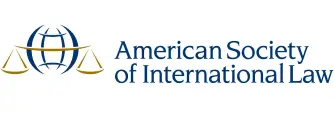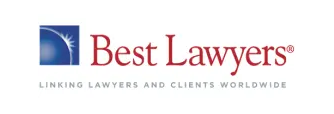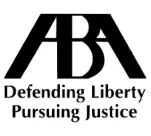FINRA Expungement Lawyer


Clean Up Your Record: CRD Complaint Expungement for RIAs
Schedule a consultation







FINRA (Financial Industry Regulatory Authority) expungement is a legal process to remove certain information from a financial professional’s record on the CRD (Central Registration Depository) system. The CRD system is a comprehensive database that holds records of individuals and firms working in the securities industry.
Expungement becomes relevant when a financial professional seeks to erase specific customer dispute information, arbitration claims, or disciplinary actions from their record. This procedure aims to accurately represent a professional’s history by removing potentially damaging or misleading information.
The process typically involves filing a formal request with FINRA, which reviews the case to determine if expungement is warranted. Given the intricate nature of this process, individuals often seek legal representation to navigate the complexities and improve their chances of a successful expungement.
Our FINRA expungement lawyer understands the regulatory framework, procedures, and best strategies for presenting a compelling case. This experience helps individuals effectively present their arguments and evidence to FINRA, increasing the likelihood of a favorable outcome.
FINRA Rule 2080 outlines the requirements for FINRA expungement. The arbitration panel can grant expungement if you meet one of the following guidelines.
The information, allegation, or claim must be:
While these are the basic guidelines, filing for and receiving a FINRA expungement is complicated. Consult with a FINRA lawyer to see if you qualify. Information that can usually be expunged arises from disputes between member firms and customers or their associated persons that the brokerage firm has reported on Forms U-4 and U-5 in response to those claims.
It is also possible to have complaints about defective structured products expunged. Occasionally, brokerage firms engage in Form U-5 Abuse and publish defamatory material that can be expunged.
My RIA Lawyer begins by filing a Statement of Claim to FINRA. Then, the FINRA expungement lawyers communicate with the investor who filed the original claim.
We select an arbitration panel for the hearing. Then, after requesting all necessary paperwork, the attorney conducts pre-hearing conferences and attends the hearing. After receiving approval from the arbitration panel, our FINRA expungement lawyers file a motion in the state court. Once the court grants the motion of expungement, My RIA Lawyer sends the paperwork to FINRA, and the records are expunged.
If the party seeking expungement is involved in an arbitration proceeding, they are required to request expungement in their answer, statement of claim, or counterclaim. The arbitrators will then decide whether to grant the expungement request based on one or more of the three standards specified in Rule 2080 of the FINRA Code of Arbitration Procedure.
The rule outlines special procedural requirements that relate to requests for expunging disputed customer information, which include that arbitrators are required to hold recorded telephonic or in-personal hearings, review settlement documents, and consider the number of payments made to any party in any other terms and conditions of the settlement.
If the arbitrators grant expungement relief, they must also provide a brief explanation and factual basis for finding that it is appropriate under one or more of the Rule 2080 standards.
Starting October 16, 2023, new FINRA rules have changed the time limit for filing expungement requests. Associated Persons (APs) must now file their requests within one of two deadlines:
These new statutory limitations underscore the importance of timely action for APs considering expungement. Failure to adhere to these strict deadlines may result in the forfeiture of the opportunity to have certain information expunged from their record.
Settlement of customer claims can’t be conditioned on the customer either supporting or refraining from opposing expungement requests.
If the court previously rejected an expungement request, e.g., if it was part of a lawsuit, then it will be automatically dismissed by FINRA.
You can leave explanatory comments on claims made against you. However, investors will likely ignore the comments, especially if you have numerous claims. Also, they aren’t likely to investigate the claims to determine their merit. Instead, they will move on to another registered investment adviser.
Expungement is the only way to protect your interests. Without it, investors might view you as a problematic or unethical adviser, even if the claims aren’t based on fact. Contact an Expungement lawyer to begin the process.
FINRA has made sweeping rule changes that now complicate the expungement process.
These amendments to the Codes make many important changes to the current framework related to the expungement of customer dispute information.
Some of the more notable new expungement rules include:
We understand that these recent rule changes can be complex and daunting for individuals seeking to clear their records. Our securities lawyers are here to guide you through these changes and provide strategic legal counsel. We are well-versed in the new expungement rules, ensuring that your case is handled with precision and care.
Are you a financial professional seeking expungement? Do you want to safeguard your reputation and ensure accurate representation of your record?
My RIA Lawyer is here to guide you through the process of FINRA expungement. With a deep understanding of the financial world and a proven track record of success, we’re committed to crafting tailored strategies that address your unique situation.
Don’t let past disputes or actions define your professional trajectory. Take the first step towards a cleaner record, and contact us today.


as a lawyer, I can give you the insights...
We are the answer to All Your Questions.
“It’s important that you look at your legal provider and who it is you have invested in to protect your business, so there are a few things you should be asking your lawyer. First, do they know what the heck you’re doing? Do they know the services you provide? The fees you’re charging? Do they understand securities? One of the problems I see when there is a legal action or when there’s an enforcement action, is that so many of you are going to attorneys that have ZERO securities experience! You’re going to, God forbid, a general practitioner!! That’s not the kind of lawyer you want, you want a securities attorney! You want them to understand your business.“
— Leila Shaver Founder
Take This Seriously...
The Most Rewarding Part O...
Compliance Is Sexy...
Stop Compliance Headaches Forever...
Regulate THIS!...